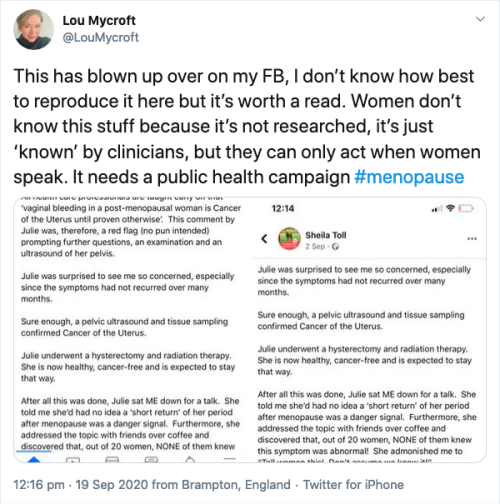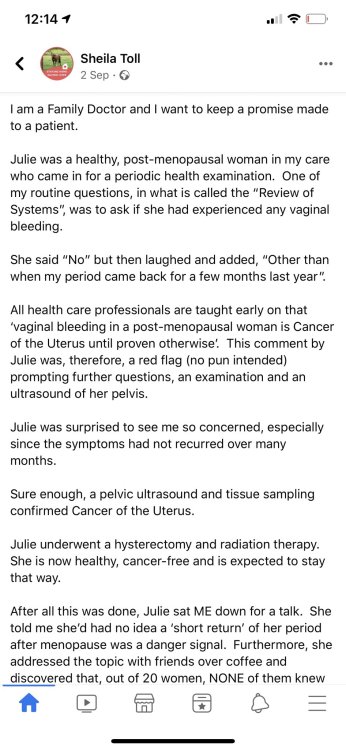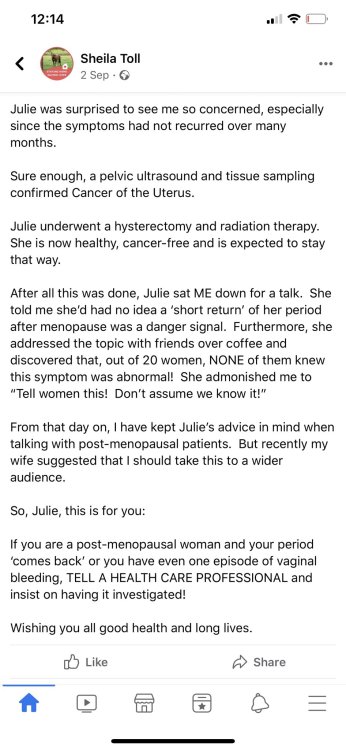darthmelyanna:drst:antiplondon:https://twitter.com/LouMycroft/status/1307277261444395008Just to clar
darthmelyanna:drst:antiplondon:https://twitter.com/LouMycroft/status/1307277261444395008Just to clarify a couple things:“Post-menopause” means a woman over 45 who has not had a period for over a year and is therefore through menopause.If you are post-menopause and experience any vaginal bleeding, even a small amount, see a doctor and get it checked out. There are other causes of bleeding, including polyps and changes to the uterine lining after menopause due to hormonal changes, which are the most common reasons. BUT cancer is a possible cause, and the earlier cancer is found, the better. Endometrial cancer is extremely dangerous because there is no way to screen for it, so it often advances before it’s found, which, like pancreatic cancer, makes it so deadly.Here at the end of Ovarian Cancer Awareness Month, I remind y’all that this is true of all gynecologic cancers. The symptoms are fairly vague for all of them, and aside from cervical cancer, there’s no reliable screening.But unusual bleeding (or if your period stops when you’re not pregnant or old enough for menopause, which is how mine presented) is something you need to have checked out no matter your age. Especially if it’s in combination with bloating or back/pelvic pain. These can be signs of significant health problems, not just some discomfort you need to push through. -- source link
Tumblr Blog : antiplondon.tumblr.com
#reblog


